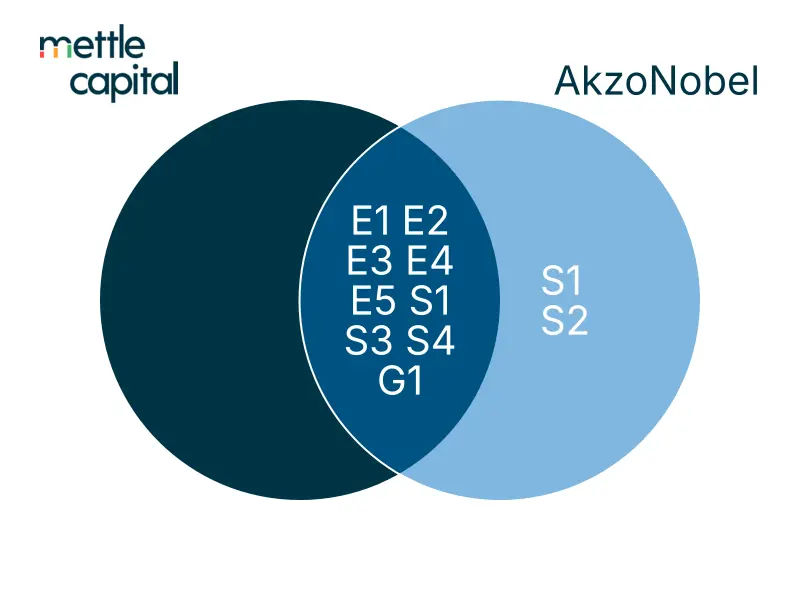AkzoNobel 2023
In this backtest, we are looking at AkzoNobel, the Dutch multinational company paints and coatings manufacturer. The data was pulled on 17 September 2024. There is strong alignment between AkzoNobel's reported materiality in its 2023 annual report and Mettle's Sustainability Reporting analysis.
Alignment of Topic Materiality

Comparing the two assessments, there is clear match between what AkzoNobel and Mettle find material and not. Where we disagree, on materiality of S1 Own Workforce and S2 Workers in the Value Chain, this may be caused by AkzoNobel's DMA process comprising of Desk research, Internal workshops, Review by management, Full materiality assessment every 3 years. As such, an overweighting on unrepresentative respondents' concerns.
Topic Materiality over time
2023
2024
G1 Business conduct has become more material than E5 Circular economy. E2 Pollution has become more mateiral than E1 Climate Change. The threshold for immaterial is between E3 Water and marine resources and S1 Own Workforce.
Which sub-topics are showing shifts in materiality
S4.3 Social inclusion of consumers remains a material subtopic for inclusion as an IRO. However, it has lost a little volume in 2024. A number of Environment subtopics stand out as becoming more material in 2024, which should be reflecting in IRO reporting. Also G1.4 Political engagement.
Materiality of Non-ESRS subtopics
Developed using SASB taxonomy and Mettle's own unique Trust, Reputation, Thematic models. The taxonomies intentionally have some overlap with each other and with the ESRS taxonomy. Key to this analysis is identifying new topics not specified in ESRS, but meeting the requirement to determine anything else that is material. In AkzoNobel's use case, Mettle would recommend Artificial Intelligence, Green Investment be included in material topics to be reported.